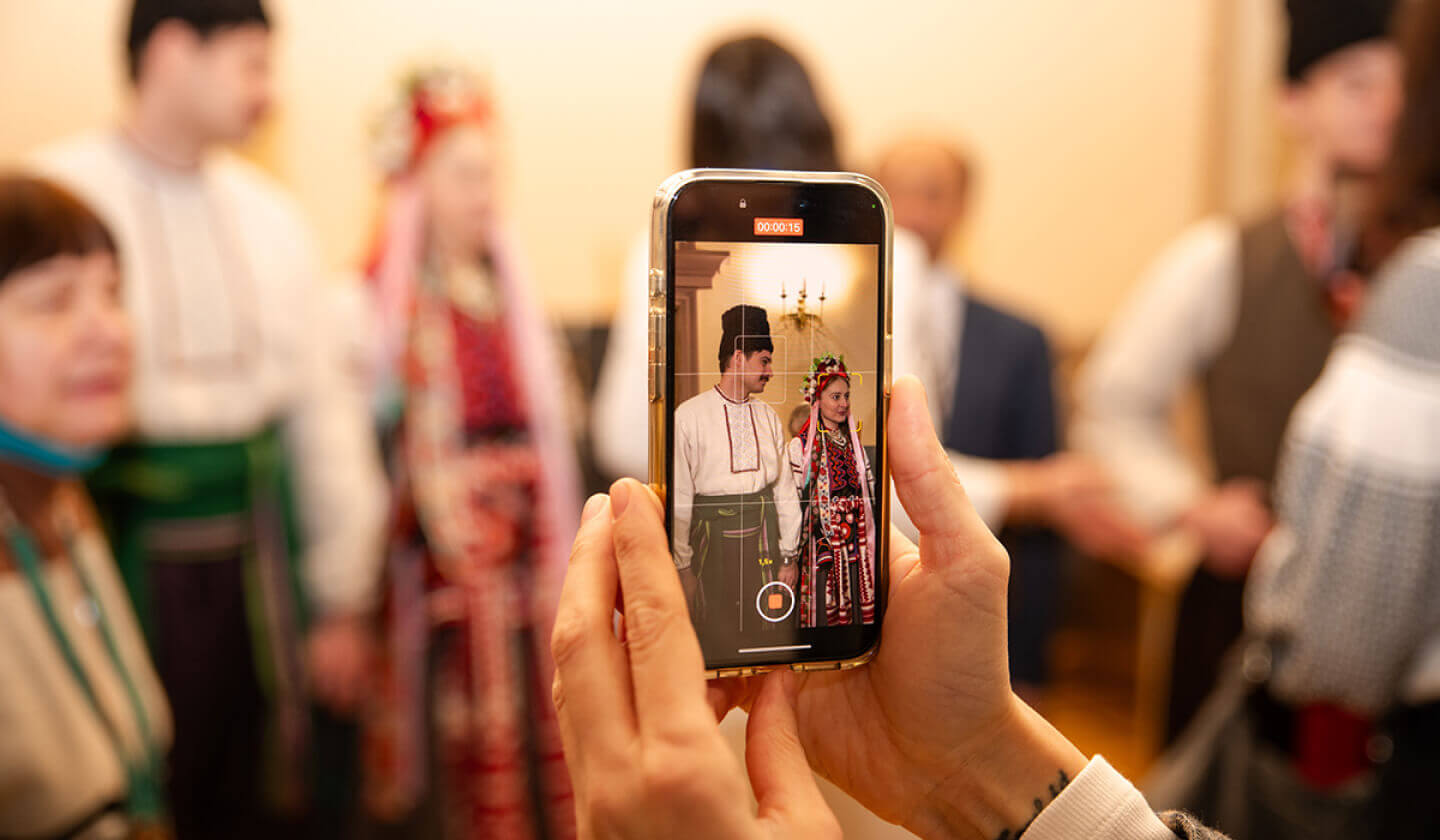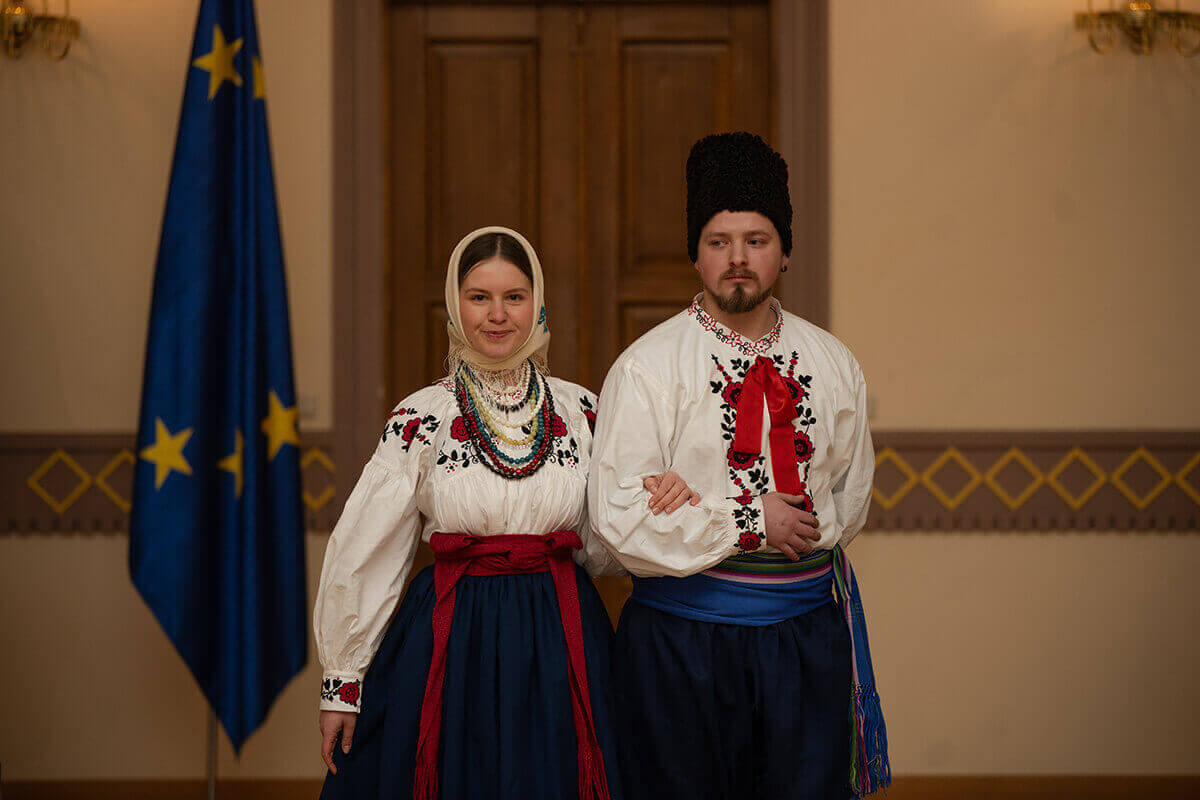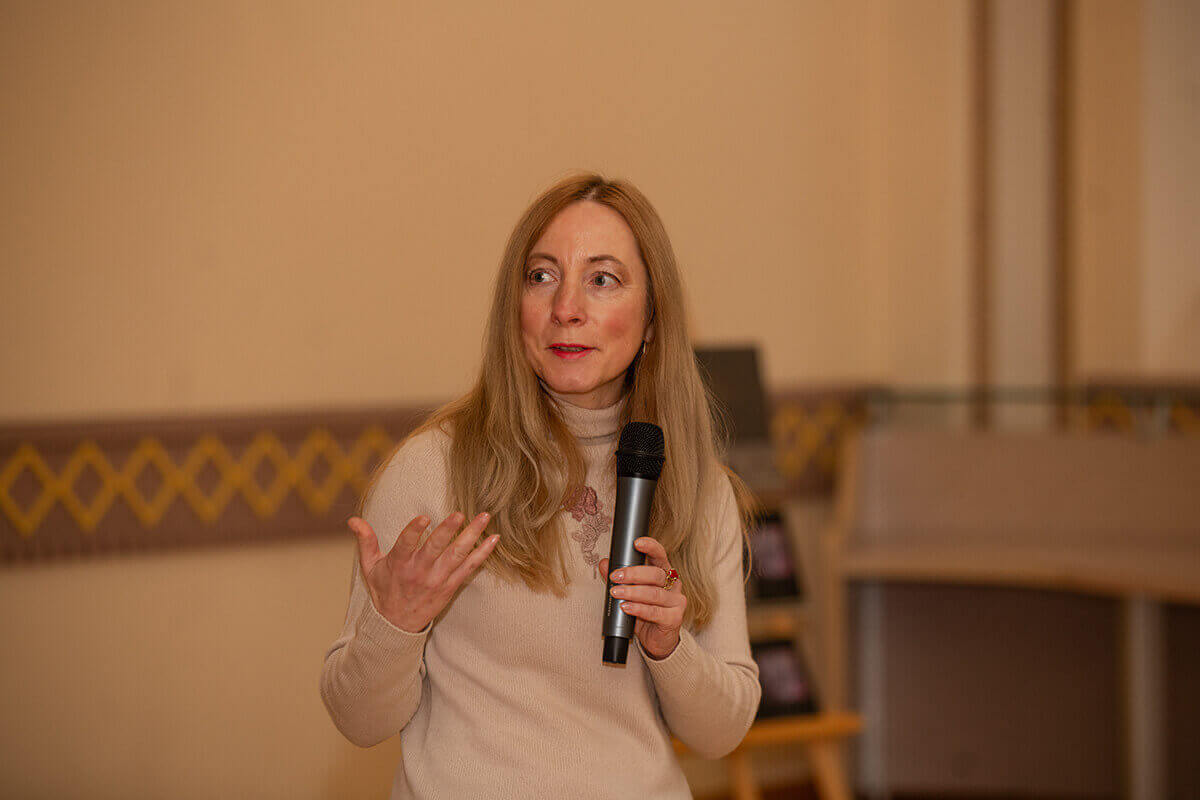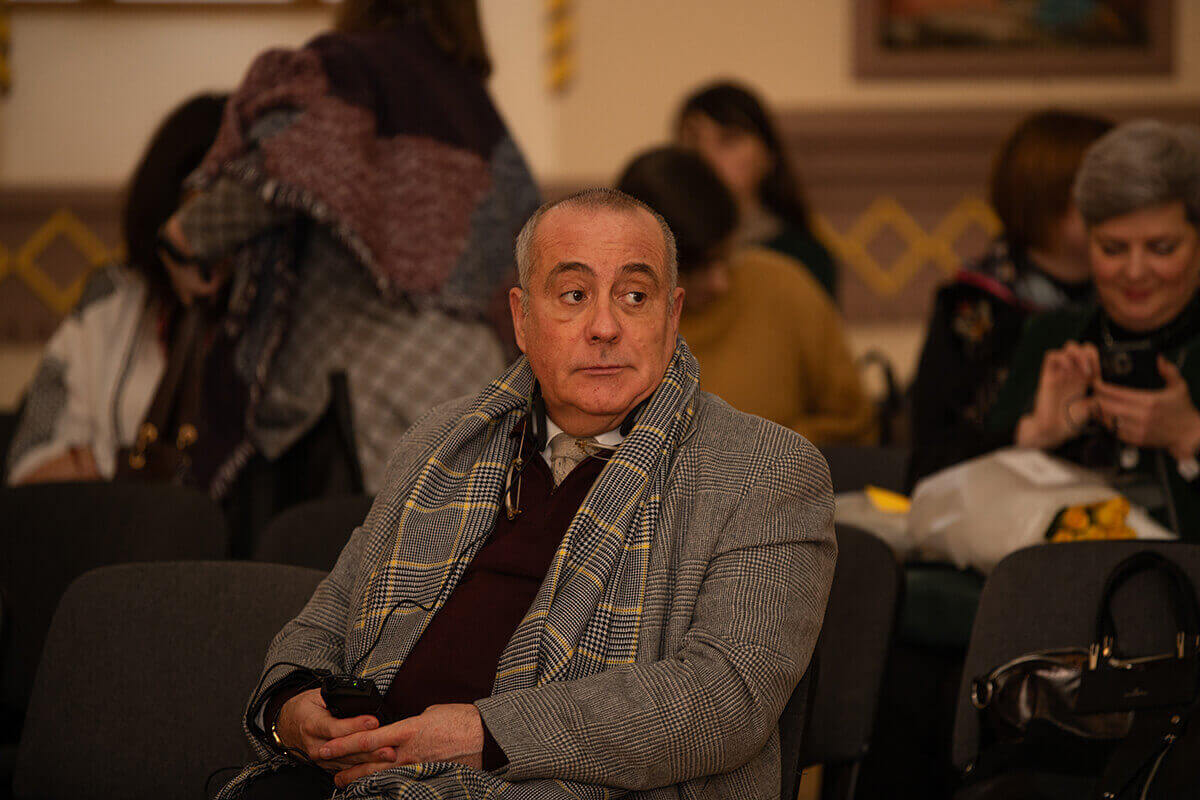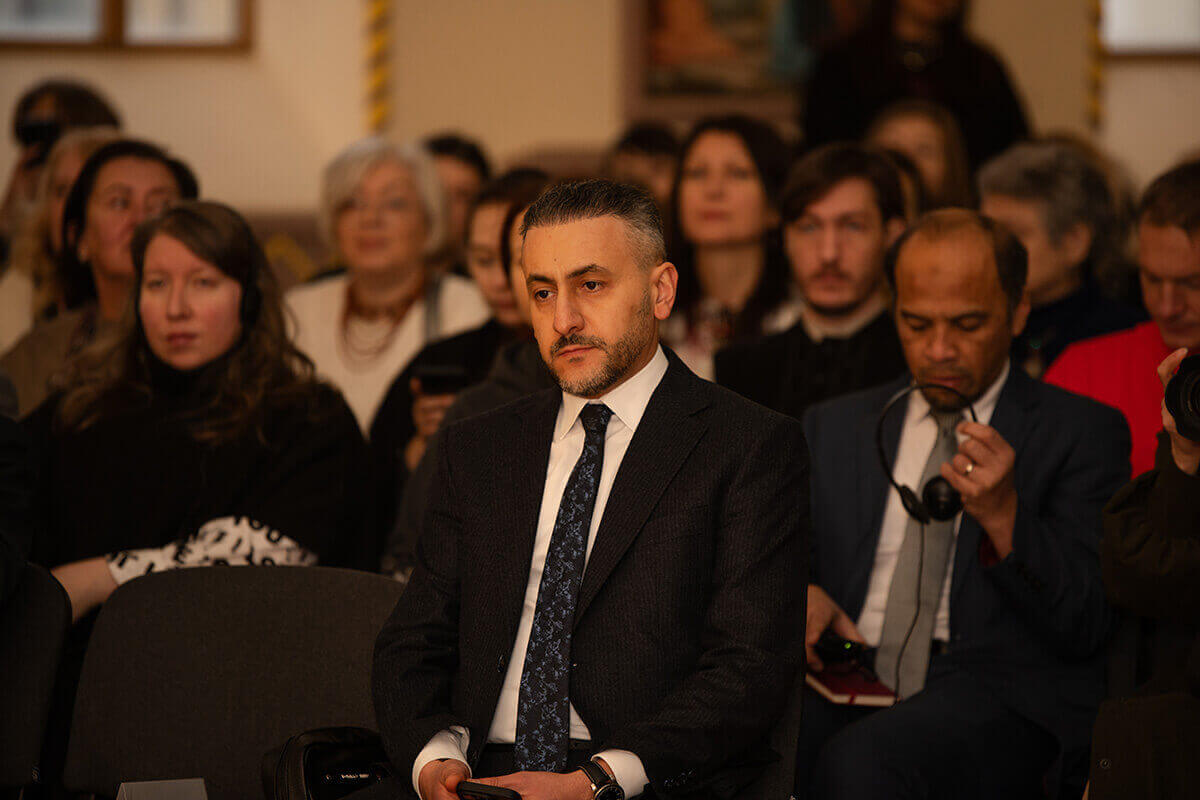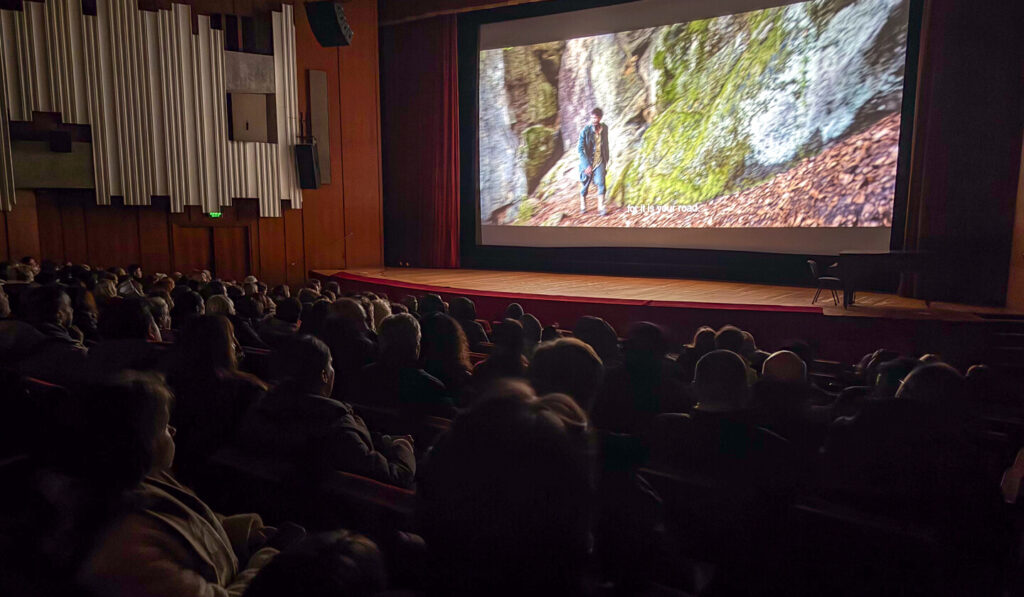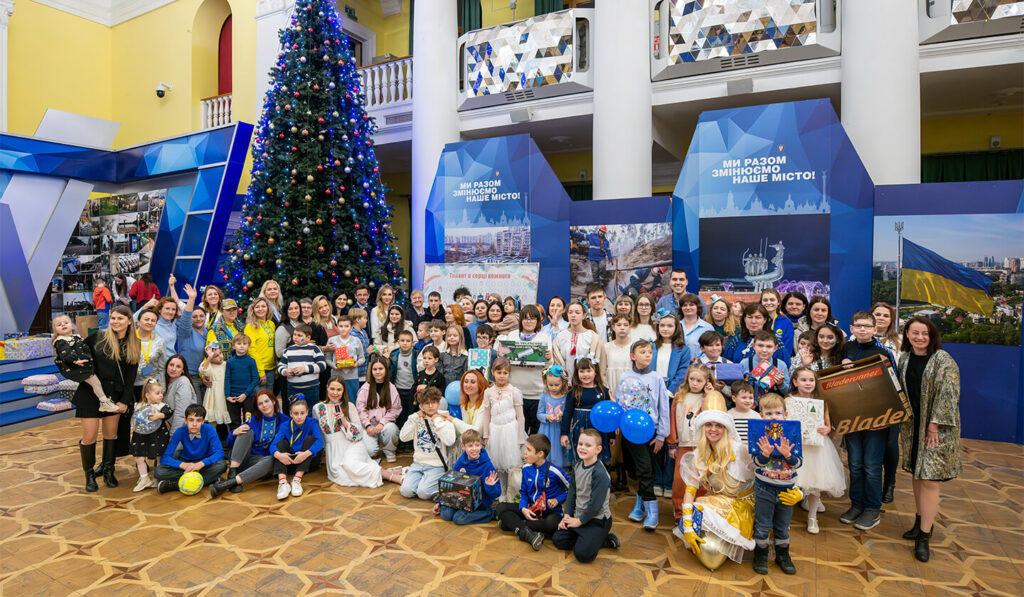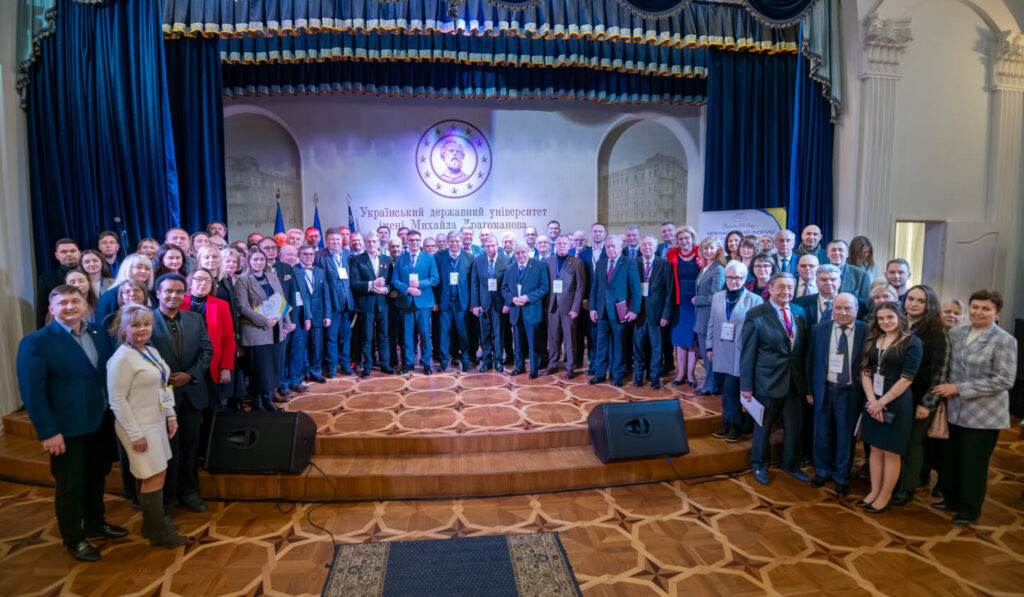The most powerful counter to russian propaganda is the revival of the centuries-old authentic traditions of Ukrainian culture.
On Thursday, 23 January 2025, the Hennadii Udovenko Diplomatic Academy of Ukraine at the MFA of Ukraine hosted a landmark cultural event — the presentation of the Occupied Heritage project. The World Vyshyvanka Day NGO and the Folklore and Ethnography Centre at the Taras Shevchenko National University of Kyiv implemented this initiative, supported by the ALIPH Foundation, the Europa Nostra International Organisation on Cultural Heritage, the European Union, and the Ukrainian Diplomatic Spouses Association, with organisational assistance from the State Enterprise ‘Directorate-General for Rendering Services to Diplomatic Missions’.
The Occupied Heritage project aims to research and reconstruct traditional male and female outfits from Ukrainian regions temporarily occupied by russia. Over five months, 25 researchers and reconstruction masters recreated 12 complete costumes from Donetsk, Zaporizhzhia, Luhansk, Kharkiv, Kherson regions, and Crimea, based on ancient examples. These efforts sought to showcase the beauty of historical attire and jewellery, highlighting the elegance and style of the people from various Ukrainian regions, who have always been the rightful owners of their land with distinct local fashion standards.
The project involved significant contributions from cultural curators Lesia Voroniuk, Volodymyr Shchybria, and Taisa Kovbasiuk, as well as artisans specialising in embroidery, accessories, tailoring, shirts, skirts, corsets, headdresses, wreaths, and footwear. Participants included Andrii Paslavskyi (VydymoNevydymo workshop), Anna Haiova, Tetiana Zez, Elmira Kataki, Olena Yasinska, Ihor and Mariia Perevertniuk, Mariia Kvitka, Hanna Heletiuk, Mariia Heletiuk, Iryna Kyrkevych, Svitlana Zadorovska, Andrii Rudenko, Iryna Tybinka, Yana Shmundyr, Olena Yerko, Vasylyna Tkachuk, Nataliia Telehei, Oksana Radetska, Oksana Humeniuk, Valentyna Anuarova, Eduard Prystupa, Olha Maksymiv, the Svit Pochuttiv workshop, etc.
The event included speeches by Vineta Kleine, Head of Communications at the NATO Representation to Ukraine; researchers and artisans of national attire; members of the Ukrainian and international diplomatic corps; the Ukrainian Diplomatic Spouses Association; and Ukrainian artists and cultural figures.
The opening remarks were delivered by: Tetiana Sybiha, head of the Centre for Public Diplomacy at the Diplomatic Academy of Ukraine and co-founder and leader of the Ukrainian Diplomatic Spouses Association; Lesia Voroniuk, World Vyshyvanka Day NGO founder and the Occupied Heritage project curator; Nataliia Musiienko, Vice-President of Europa Nostra International Organisation on Cultural Heritage; Volodymyr Shchybria, Director of the Folklore and Ethnography Centre at the Taras Shevchenko National University of Kyiv.
Speaking on behalf of Hennadii Nadolenko, Director of the Diplomatic Academy of Ukraine, Tetiana Sybiha highlighted the cultural curators’ and researchers’ meticulous efforts and impressive achievements. She noted that their work is actively utilised by Ukraine’s diplomatic missions abroad as an effective tool of cultural diplomacy, helping to spread greater awareness about Ukraine and its rich cultural heritage. Notably, she expressed gratitude to the project curators for their service to Ukraine’s interests, their vital educational work, and their tireless efforts to amplify Ukraine’s voice globally:
‘Today, we are forced to defend our cultural heritage. Unfortunately, both Ukraine and the entire civilised world are under constant aggressive attack from russia. The crimes of the Kremlin regime are aimed at destroying our lives, our culture, and our people.’
‘The project yielded unique, full costumes of artistic and cultural value from the occupied regions, where Ukrainian cultural heritage has been destroyed or removed to the aggressor state. Researchers conducted extensive searches in state museums and private collections to find artefacts for reconstruction. We wanted to showcase the richness of Ukrainian attire and how Ukrainians have always valued looking dignified and prosperous as the rightful owners of their land,’ moderator Lesia Voroniuk explained, highlighting the artistic and cultural significance of the recreated costumes and the painstaking work of the researchers and artisans.
Following the speeches, students, under the guidance of Volodymyr Shchybria, presented a fashion show featuring traditional costumes from Donetsk, Zaporizhzhia, Luhansk, Kharkiv, Kherson regions, and Crimea, accompanied by virtuoso sopilka player Maksym Berezhniuk. The event concluded with the Stodyvnytsia folk ensemble performing traditional carols from the occupied territories.
The costumes will later be displayed in various museums and galleries in Ukraine and abroad. Exhibitions are planned for 2025 at the National Centre of Folk Culture ‘Ivan Honchar Museum’, Vyshhorod Historical and Cultural Reserve, and Irpin Historical and Local History Museum. Eventually, the recreated items will become part of the permanent exhibition at the House of Vyshyvanka in Chernivtsi.
